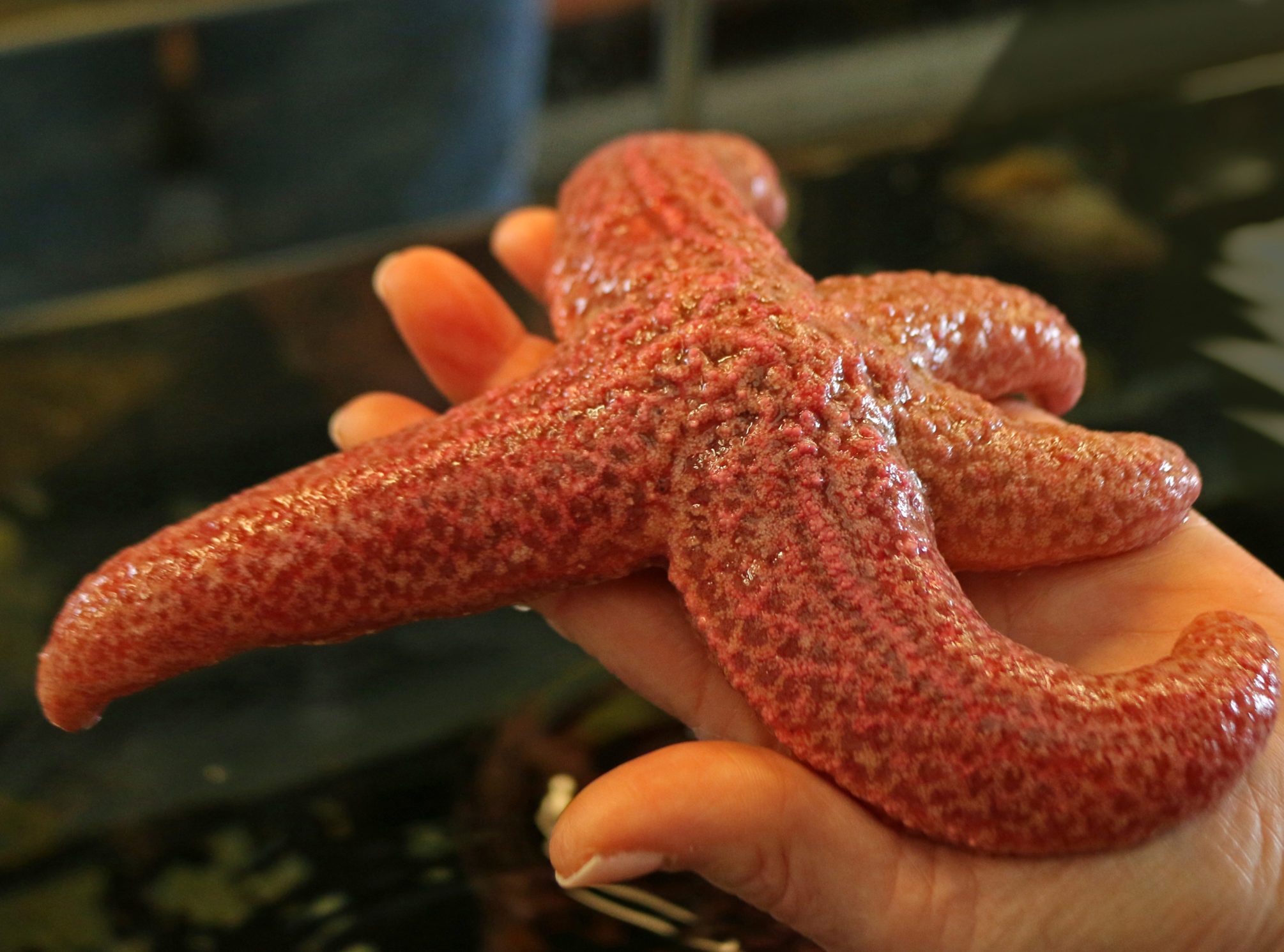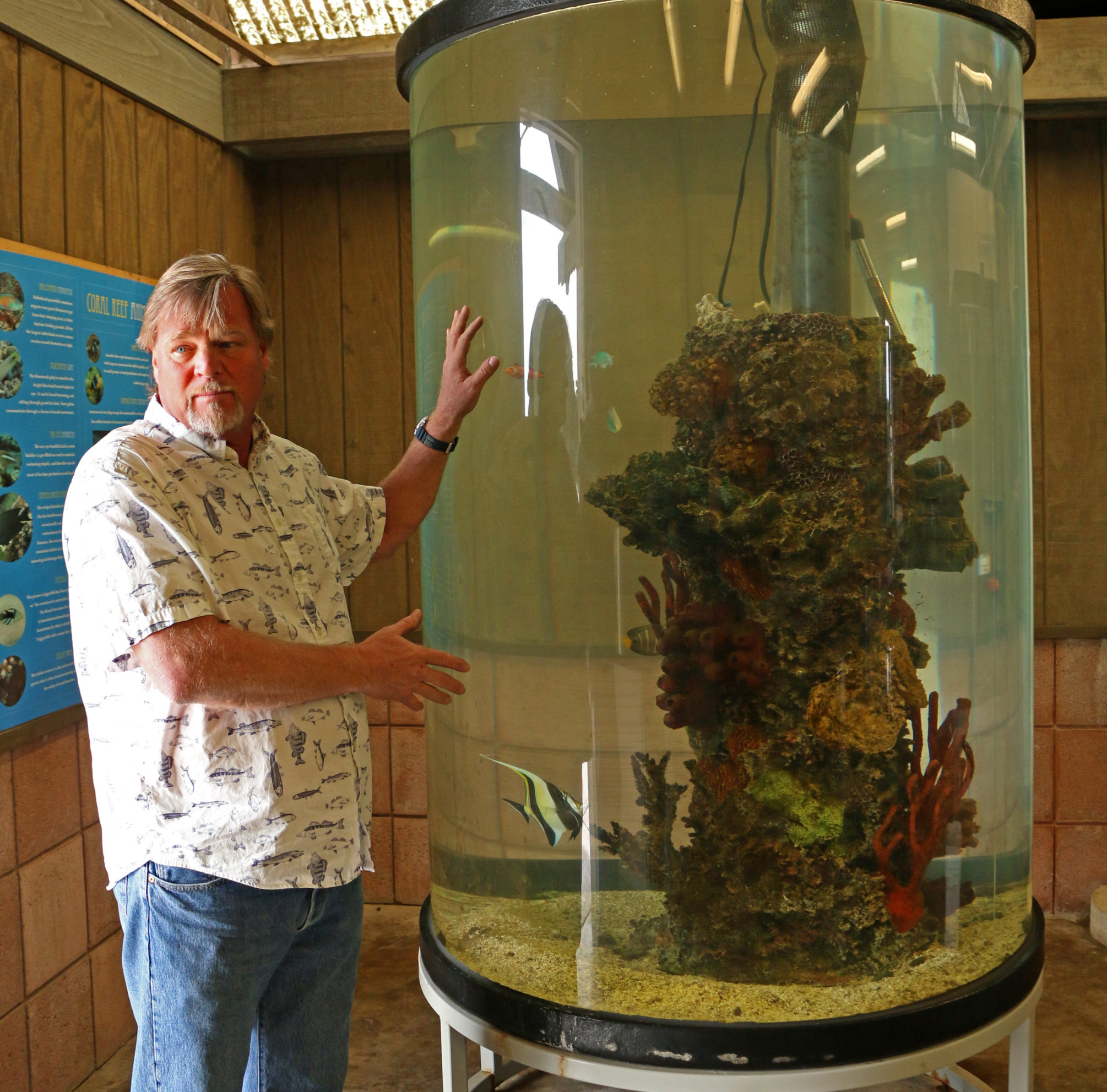
A sea star from one of the REEF tanks at the UC Santa Barbara Marine Science Institute.
Credit: E Zambello/LTER-NCO CC BY 4.0
Tucked into an absolutely beautiful piece of the UC Santa Barbara campus, the Research Experience and Education Facility (REEF) sits at the edge of both the Pacific Ocean and the UCSB Lagoon. Inside, tanks full of marine creatures—including one with tropical species characteristic of a research site in French Polynesia—sit bubbling away while student interns take measurements and clean the tanks. There are starfish, lobsters, sea urchins, and more, some encased in open glass enclosures perfect for touch tanks. The REEF building is small, unassuming, but has become the center for marine education for the area.
Scott Simon gives us a tour, explaining how the REEF site is open for school kids, but that they also send a mobile reef unit to classrooms. They welcome all types of learners, he says, from kindergarten all the way through college, including community education classes and open hours for the public. He is especially proud of one group of students who come every summer: Tech Trek.
Though the room is empty now, I imagine the empty space between tanks full of middle school girls, oohing and aahing over the marine creatures as they absorb lessons in ocean conservation. Run through a partnership with the American Association of Women, the program hosts 80 girls on campus for a week in the summer to experience college as an all-day, immersive experience. In addition to lab work at REEF, Simon—a camp counselor—takes the girls on the water in a whale watching boat to perform an open-ocean lab. The week is so impactful that girls have come back as young women to serve as camp counselors themselves!

Scott Simon of UC Santa Barbara’s Marine Science Institute gives a tour of the Research Experience & Education Facility (REEF).
Credit: E Zambello/LTER-NCO CC BY 4.0
REEF is also the site of a unique marine mystery. Within the tanks lie multi-colored starfish, stretching five legs in different directions as they rest or move along surfaces within the tanks. Unfortunately, a disease has ripped through both the wild and captive populations of starfish along coastal California, killing those in the ocean as well as those in aquariums. However, the starfish here at the REEF facility appear unaffected. Why? It’s still unclear. Simon postulates that they gained immunity from all the handling they receive from students of all shapes and sizes, but to this day no one knows for sure.
As he continues to work with both teachers and students, Simon recognizes that data illiteracy is not just a problem with K-12 kids, but teachers as well. By conducting teacher training and creating data projects based on research done at the LTER, Simon strives to promote real-life mathematical situations, “not just another math project out of a book.” As a result of his efforts as well as those of the REEF team over the years, thousands of kids have been introduced to ocean conservation, even those who had never visited the beach before.






